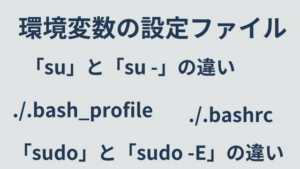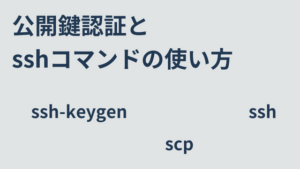curlコマンドの主な利用方法を整理します。「ResponseHeaderのみといった出力指定方法」「HTTPメソッド指定方法」「データ送信方法」「リクエストヘッダーの指定方法」「cookieの受信・送信」「Basic認証」など取り上げます。
出力指定
ResponseBodyのみ出力
( オプション指定なし )
$ curl http://localhost:8000
Hello, World!ResponseHeaderのみ出力
( -I --head )
$ curl -I http://localhost:8000
HTTP/1.1 200 OK
Content-Type: text/plain; charset=UTF-8
Date: Mon, 03 May 2021 08:11:19 GMT
Content-Length: 13ResponseHeader
とResponseBodyを出力
( -i --include )
$ curl -i http://localhost:8000
HTTP/1.1 200 OK
Content-Type: text/plain; charset=UTF-8
Date: Mon, 03 May 2021 08:13:43 GMT
Content-Length: 13
Hello, World!RequestHeader
とResponseHeader
とResponseBodyを出力
( -v --verbose )
$ curl -v http://localhost:8000
* Trying ::1:8000...
* Connected to localhost (::1) port 8000 (#0)
> GET / HTTP/1.1
> Host: localhost:8000
> User-Agent: curl/7.71.1
> Accept: */*
>
* Mark bundle as not supporting multiuse
< HTTP/1.1 200 OK
< Content-Type: text/plain; charset=UTF-8
< Date: Mon, 03 May 2021 08:11:53 GMT
< Content-Length: 13
<
* Connection #0 to host localhost left intact
Hello, World!パケットデータ
( --trace <file> --trace-ascii <file> )
$ curl --trace /dev/stdout http://localhost:8000
== Info: Trying ::1:8000...
== Info: Connected to localhost (::1) port 8000 (#0)
=> Send header, 78 bytes (0x4e)
0000: 47 45 54 20 2f 20 48 54 54 50 2f 31 2e 31 0d 0a GET / HTTP/1.1..
0010: 48 6f 73 74 3a 20 6c 6f 63 61 6c 68 6f 73 74 3a Host: localhost:
0020: 38 30 30 30 0d 0a 55 73 65 72 2d 41 67 65 6e 74 8000..User-Agent
0030: 3a 20 63 75 72 6c 2f 37 2e 37 31 2e 31 0d 0a 41 : curl/7.71.1..A
0040: 63 63 65 70 74 3a 20 2a 2f 2a 0d 0a 0d 0a ccept: */*....
== Info: Mark bundle as not supporting multiuse
<= Recv header, 17 bytes (0x11)
0000: 48 54 54 50 2f 31 2e 31 20 32 30 30 20 4f 4b 0d HTTP/1.1 200 OK.
0010: 0a .
<= Recv header, 41 bytes (0x29)
0000: 43 6f 6e 74 65 6e 74 2d 54 79 70 65 3a 20 74 65 Content-Type: te
0010: 78 74 2f 70 6c 61 69 6e 3b 20 63 68 61 72 73 65 xt/plain; charse
0020: 74 3d 55 54 46 2d 38 0d 0a t=UTF-8..
<= Recv header, 37 bytes (0x25)
0000: 44 61 74 65 3a 20 4d 6f 6e 2c 20 30 33 20 4d 61 Date: Mon, 03 Ma
0010: 79 20 32 30 32 31 20 30 38 3a 31 34 3a 34 36 20 y 2021 08:14:46
0020: 47 4d 54 0d 0a GMT..
<= Recv header, 20 bytes (0x14)
0000: 43 6f 6e 74 65 6e 74 2d 4c 65 6e 67 74 68 3a 20 Content-Length:
0010: 31 33 0d 0a 13..
<= Recv header, 2 bytes (0x2)
0000: 0d 0a ..
<= Recv data, 13 bytes (0xd)
0000: 48 65 6c 6c 6f 2c 20 57 6f 72 6c 64 21 Hello, World!
== Info: Connection #0 to host localhost left intact
Hello, World!$ curl --trace-ascii /dev/stdout http://localhost:8000
== Info: Trying ::1:8000...
== Info: Connected to localhost (::1) port 8000 (#0)
=> Send header, 78 bytes (0x4e)
0000: GET / HTTP/1.1
0010: Host: localhost:8000
0026: User-Agent: curl/7.71.1
003f: Accept: */*
004c:
== Info: Mark bundle as not supporting multiuse
<= Recv header, 17 bytes (0x11)
0000: HTTP/1.1 200 OK
<= Recv header, 41 bytes (0x29)
0000: Content-Type: text/plain; charset=UTF-8
<= Recv header, 37 bytes (0x25)
0000: Date: Mon, 03 May 2021 08:14:19 GMT
<= Recv header, 20 bytes (0x14)
0000: Content-Length: 13
<= Recv header, 2 bytes (0x2)
0000:
<= Recv data, 13 bytes (0xd)
0000: Hello, World!
== Info: Connection #0 to host localhost left intact
Hello, World!進捗非表示 & エラー表示
( -sS )
$ curl -sS http://localhost:8000
Hello, World!出力フォーマット指定
( -w <format> --write-out <format> )
http_codeのみ確認したいときなどに活用できます。%{variable_name} の形式で指定します。
レスポンスボディは非表示にしたいので -o /dev/null を指定しています。
$ curl -w 'http_code: %{http_code}\n' http://localhost:8000/ -sS -o /dev/null
http_code: 200$ curl -w 'size_download: %{size_download}\n' http://localhost:8000/ -sS -o /dev/null
size_download: 13$ curl -w 'content_type: %{content_type}\n' http://localhost:8000/ -sS -o /dev/null
content_type: text/plain; charset=UTF-8ファイルに出力
ローカルにダウンロード
( -O --remote-name )
まず、-Oオプション をつけずに実行してみます。
$ curl http://localhost:8000/test.html
<!doctype html>
<html>
<head>
<meta charset="utf-8">
</head>
<body>
<p>わくわくBank</p>
</body>
</html>-Oオプション をつけてローカルにダウンロードしてみます。
$ curl -O http://localhost:8000/test.html
% Total % Received % Xferd Average Speed Time Time Time Current
Dload Upload Total Spent Left Speed
100 115 100 115 0 0 57500 0 --:--:-- --:--:-- --:--:-- 57500
$
$
$ cat test.html
<!doctype html>
<html>
<head>
<meta charset="utf-8">
</head>
<body>
<p>わくわくBank</p>
</body>
</html>出力ファイル名を指定
( -o <file> --output <file>)
指定ファイルに出力できます。
$ curl -o abc.html http://localhost:8000/test.html
% Total % Received % Xferd Average Speed Time Time Time Current
Dload Upload Total Spent Left Speed
100 115 100 115 0 0 38333 0 --:--:-- --:--:-- --:--:-- 57500
$
$
$ cat abc.html
<!doctype html>
<html>
<head>
<meta charset="utf-8">
</head>
<body>
<p>わくわくBank</p>
</body>
</html>HTTPメソッドを指定
( -X <command> --request <command> )
# GET
curl http://localhost:8000/
curl -X GET http://localhost:8000/
# POST
curl -X POST http://localhost:8000/
# PUT
curl -X PUT http://localhost:8000/
# DELETE
curl -X DELETE http://localhost:8000/データ送信
application/x-www-form-urlencoded
( -d <data> --data <data> )
$ curl -v -X POST http://localhost:8000/ \
> -d 'aaa=111' \
> -d 'bbb=222' \
> -d 'ccc=333'
Note: Unnecessary use of -X or --request, POST is already inferred.
* Trying ::1:8000...
* Connected to localhost (::1) port 8000 (#0)
> POST / HTTP/1.1
> Host: localhost:8000
> User-Agent: curl/7.71.1
> Accept: */*
> Content-Length: 23
> Content-Type: application/x-www-form-urlencoded
>
* upload completely sent off: 23 out of 23 bytes
* Mark bundle as not supporting multiuse
(省略)以下のように指定することもできます。
$ curl -v -X POST http://localhost:8000/ \
-d 'aaa=111&bbb=222&ccc=333'URLエンコード
+ application/x-www-form-urlencoded
( --data-urlencode <data> )
まずは、-dオプション でURLエンコードされていないケースを確認します。
$ curl -X POST http://localhost:8000/ \
> --trace-ascii /dev/stdout \
> --data 'aaa=1 1' \
> --data 'bbb=2%2' \
> --data 'ccc=3&3'
(省略)
0000: aaa=1 1&bbb=2%2&ccc=3&3
(省略)次に、--data-urlencodeオプション でURLエンコードされているケースを確認します。
$ curl -X POST http://localhost:8000/ \
> --trace-ascii /dev/stdout \
> --data-urlencode 'aaa=1 1' \
> --data-urlencode 'bbb=2%2' \
> --data-urlencode 'ccc=3&3'
(省略)
0000: aaa=1%201&bbb=2%252&ccc=3%263
(省略)multipart/form-data
( -F <name=content>
--form <name=content> )
ファイルアップロードします。
-Fオプション を利用すると Content-Type が multipart/form-data になります。
$ cat sample.txt
ABCDEFG
$
$
$ curl -v -X POST http://localhost:8000/ \
> --trace-ascii /dev/stdout \
> -F 'file=@sample.txt' \
> -F 'aaa=111' \
> -F 'bbb=222'
Warning: --trace-ascii overrides an earlier trace/verbose option
Note: Unnecessary use of -X or --request, POST is already inferred.
== Info: Trying ::1:8000...
== Info: Connected to localhost (::1) port 8000 (#0)
=> Send header, 186 bytes (0xba)
0000: POST / HTTP/1.1
0011: Host: localhost:8000
0027: User-Agent: curl/7.71.1
0040: Accept: */*
004d: Content-Length: 386
0062: Content-Type: multipart/form-data; boundary=--------------------
00a2: ----d720071bb9a8dd01
00b8:
=> Send data, 386 bytes (0x182)
0000: --------------------------d720071bb9a8dd01
002c: Content-Disposition: form-data; name="file"; filename="sample.tx
006c: t"
0070: Content-Type: text/plain
008a:
008c: ABCDEFG.
0096: --------------------------d720071bb9a8dd01
00c2: Content-Disposition: form-data; name="aaa"
00ee:
00f0: 111
00f5: --------------------------d720071bb9a8dd01
0121: Content-Disposition: form-data; name="bbb"
014d:
014f: 222
0154: --------------------------d720071bb9a8dd01--
(省略)リクエストヘッダー指定
( -H <header/@file> --header <header/@file> )
-Hオプション でリクエストヘッダーを指定できます。
$ curl -v http://localhost:8000 \
> -H 'Content-Type: application/json' \
> -H 'Referer: http://example.com' \
> -H 'X-Sample: wakuwaku'
* Trying ::1:8000...
* Connected to localhost (::1) port 8000 (#0)
> GET / HTTP/1.1
> Host: localhost:8000
> User-Agent: curl/7.71.1
> Accept: */*
> Content-Type: application/json
> Referer: http://example.com
> X-Sample: wakuwaku
(省略)Cookie
受信
( -c <filename> )
サーバー側でCookieを設定するように調整しました。
my_cookie.txt というファイルにCookieを書き込むように -cオプション を設定してリクエストします。
$ curl -v http://localhost:8000/cookie \
> -c my_cookie.txt
* Trying ::1:8000...
* Connected to localhost (::1) port 8000 (#0)
> GET /cookie HTTP/1.1
> Host: localhost:8000
> User-Agent: curl/7.71.1
> Accept: */*
>
* Mark bundle as not supporting multiuse
< HTTP/1.1 200 OK
< Content-Type: text/plain; charset=UTF-8
* Added cookie username=""wakuwaku bank"" for domain localhost, path /, expire 1620124726
< Set-Cookie: username="wakuwaku bank"; Expires=Tue, 04 May 2021 10:38:46 GMT
< Date: Mon, 03 May 2021 10:38:46 GMT
< Content-Length: 13
<
* Connection #0 to host localhost left intact
Hello, World!my_cookie.txt ファイルが生成されました。中身を確認します。
$ cat my_cookie.txt
# Netscape HTTP Cookie File
# https://curl.haxx.se/docs/http-cookies.html
# This file was generated by libcurl! Edit at your own risk.
localhost FALSE / FALSE 1620124726 username "wakuwaku bank"送信
( -b <data|filename> )
先ほどcookieを書き込んだ my_cookie.txt ファイルを -bオプション に指定します。
$ curl -v http://localhost:8000/cookie -b my_cookie.txt
* Trying ::1:8000...
* Connected to localhost (::1) port 8000 (#0)
> GET /cookie HTTP/1.1
> Host: localhost:8000
> User-Agent: curl/7.71.1
> Accept: */*
> Cookie: username="wakuwaku bank"
>
* Mark bundle as not supporting multiuse
< HTTP/1.1 200 OK
< Content-Type: text/plain; charset=UTF-8
* Replaced cookie username=""wakuwaku bank"" for domain localhost, path /, expire 1620124902
< Set-Cookie: username="wakuwaku bank"; Expires=Tue, 04 May 2021 10:41:42 GMT
< Date: Mon, 03 May 2021 10:41:42 GMT
< Content-Length: 13
<
* Connection #0 to host localhost left intact
Hello, World!リクエストに Cookie: username="wakuwaku bank" が設定されていることがわかります。
Basic認証
( --basic -u <user:password> )
サーバー側でBasic認証を設定してみました。以下のように401になります。
$ curl -i http://localhost:8000
HTTP/1.1 401 Unauthorized
Content-Type: application/json; charset=UTF-8
Www-Authenticate: basic realm=Restricted
Date: Mon, 03 May 2021 10:30:11 GMT
Content-Length: 27
{"message":"Unauthorized"}--basic -u <user:password> でBasic認証を通すことができます。
$ curl -i http://localhost:8000 \
> --basic -u yamada:sample_password
HTTP/1.1 200 OK
Content-Type: text/plain; charset=UTF-8
Date: Mon, 03 May 2021 10:32:45 GMT
Content-Length: 13
Hello, World!その他のオプション
( -h )
curl -h でオプション一覧を確認できます。多いですね。
(base) $ curl -h
Usage: curl [options...] <url>
--abstract-unix-socket <path> Connect via abstract Unix domain socket
--alt-svc <file name> Enable alt-svc with this cache file
--anyauth Pick any authentication method
-a, --append Append to target file when uploading
--basic Use HTTP Basic Authentication
--cacert <file> CA certificate to verify peer against
--capath <dir> CA directory to verify peer against
-E, --cert <certificate[:password]> Client certificate file and password
--cert-status Verify the status of the server certificate
--cert-type <type> Certificate type (DER/PEM/ENG)
--ciphers <list of ciphers> SSL ciphers to use
--compressed Request compressed response
--compressed-ssh Enable SSH compression
-K, --config <file> Read config from a file
--connect-timeout <seconds> Maximum time allowed for connection
--connect-to <HOST1:PORT1:HOST2:PORT2> Connect to host
-C, --continue-at <offset> Resumed transfer offset
-b, --cookie <data|filename> Send cookies from string/file
-c, --cookie-jar <filename> Write cookies to <filename> after operation
--create-dirs Create necessary local directory hierarchy
--crlf Convert LF to CRLF in upload
--crlfile <file> Get a CRL list in PEM format from the given file
-d, --data <data> HTTP POST data
--data-ascii <data> HTTP POST ASCII data
--data-binary <data> HTTP POST binary data
--data-raw <data> HTTP POST data, '@' allowed
--data-urlencode <data> HTTP POST data url encoded
--delegation <LEVEL> GSS-API delegation permission
--digest Use HTTP Digest Authentication
-q, --disable Disable .curlrc
--disable-eprt Inhibit using EPRT or LPRT
--disable-epsv Inhibit using EPSV
--disallow-username-in-url Disallow username in url
--dns-interface <interface> Interface to use for DNS requests
--dns-ipv4-addr <address> IPv4 address to use for DNS requests
--dns-ipv6-addr <address> IPv6 address to use for DNS requests
--dns-servers <addresses> DNS server addrs to use
--doh-url <URL> Resolve host names over DOH
-D, --dump-header <filename> Write the received headers to <filename>
--egd-file <file> EGD socket path for random data
--engine <name> Crypto engine to use
--etag-compare <file> Pass an ETag from a file as a custom header
--etag-save <file> Parse ETag from a request and save it to a file
--expect100-timeout <seconds> How long to wait for 100-continue
-f, --fail Fail silently (no output at all) on HTTP errors
--fail-early Fail on first transfer error, do not continue
--false-start Enable TLS False Start
-F, --form <name=content> Specify multipart MIME data
--form-string <name=string> Specify multipart MIME data
--ftp-account <data> Account data string
--ftp-alternative-to-user <command> String to replace USER [name]
--ftp-create-dirs Create the remote dirs if not present
--ftp-method <method> Control CWD usage
--ftp-pasv Use PASV/EPSV instead of PORT
-P, --ftp-port <address> Use PORT instead of PASV
--ftp-pret Send PRET before PASV
--ftp-skip-pasv-ip Skip the IP address for PASV
--ftp-ssl-ccc Send CCC after authenticating
--ftp-ssl-ccc-mode <active/passive> Set CCC mode
--ftp-ssl-control Require SSL/TLS for FTP login, clear for transfer
-G, --get Put the post data in the URL and use GET
-g, --globoff Disable URL sequences and ranges using {} and []
--happy-eyeballs-timeout-ms <milliseconds> Time for IPv6 before trying IPv4
--haproxy-protocol Send HAProxy PROXY protocol v1 header
-I, --head Show document info only
-H, --header <header/@file> Pass custom header(s) to server
-h, --help This help text
--hostpubmd5 <md5> Acceptable MD5 hash of the host public key
--http0.9 Allow HTTP 0.9 responses
-0, --http1.0 Use HTTP 1.0
--http1.1 Use HTTP 1.1
--http2 Use HTTP 2
--http2-prior-knowledge Use HTTP 2 without HTTP/1.1 Upgrade
--http3 Use HTTP v3
--ignore-content-length Ignore the size of the remote resource
-i, --include Include protocol response headers in the output
-k, --insecure Allow insecure server connections when using SSL
--interface <name> Use network INTERFACE (or address)
-4, --ipv4 Resolve names to IPv4 addresses
-6, --ipv6 Resolve names to IPv6 addresses
-j, --junk-session-cookies Ignore session cookies read from file
--keepalive-time <seconds> Interval time for keepalive probes
--key <key> Private key file name
--key-type <type> Private key file type (DER/PEM/ENG)
--krb <level> Enable Kerberos with security <level>
--libcurl <file> Dump libcurl equivalent code of this command line
--limit-rate <speed> Limit transfer speed to RATE
-l, --list-only List only mode
--local-port <num/range> Force use of RANGE for local port numbers
-L, --location Follow redirects
--location-trusted Like --location, and send auth to other hosts
--login-options <options> Server login options
--mail-auth <address> Originator address of the original email
--mail-from <address> Mail from this address
--mail-rcpt <address> Mail to this address
--mail-rcpt-allowfails Allow RCPT TO command to fail for some recipients
-M, --manual Display the full manual
--max-filesize <bytes> Maximum file size to download
--max-redirs <num> Maximum number of redirects allowed
-m, --max-time <seconds> Maximum time allowed for the transfer
--metalink Process given URLs as metalink XML file
--negotiate Use HTTP Negotiate (SPNEGO) authentication
-n, --netrc Must read .netrc for user name and password
--netrc-file <filename> Specify FILE for netrc
--netrc-optional Use either .netrc or URL
-:, --next Make next URL use its separate set of options
--no-alpn Disable the ALPN TLS extension
-N, --no-buffer Disable buffering of the output stream
--no-keepalive Disable TCP keepalive on the connection
--no-npn Disable the NPN TLS extension
--no-progress-meter Do not show the progress meter
--no-sessionid Disable SSL session-ID reusing
--noproxy <no-proxy-list> List of hosts which do not use proxy
--ntlm Use HTTP NTLM authentication
--ntlm-wb Use HTTP NTLM authentication with winbind
--oauth2-bearer <token> OAuth 2 Bearer Token
-o, --output <file> Write to file instead of stdout
-Z, --parallel Perform transfers in parallel
--parallel-immediate Do not wait for multiplexing (with --parallel)
--parallel-max Maximum concurrency for parallel transfers
--pass <phrase> Pass phrase for the private key
--path-as-is Do not squash .. sequences in URL path
--pinnedpubkey <hashes> FILE/HASHES Public key to verify peer against
--post301 Do not switch to GET after following a 301
--post302 Do not switch to GET after following a 302
--post303 Do not switch to GET after following a 303
--preproxy [protocol://]host[:port] Use this proxy first
-#, --progress-bar Display transfer progress as a bar
--proto <protocols> Enable/disable PROTOCOLS
--proto-default <protocol> Use PROTOCOL for any URL missing a scheme
--proto-redir <protocols> Enable/disable PROTOCOLS on redirect
-x, --proxy [protocol://]host[:port] Use this proxy
--proxy-anyauth Pick any proxy authentication method
--proxy-basic Use Basic authentication on the proxy
--proxy-cacert <file> CA certificate to verify peer against for proxy
--proxy-capath <dir> CA directory to verify peer against for proxy
--proxy-cert <cert[:passwd]> Set client certificate for proxy
--proxy-cert-type <type> Client certificate type for HTTPS proxy
--proxy-ciphers <list> SSL ciphers to use for proxy
--proxy-crlfile <file> Set a CRL list for proxy
--proxy-digest Use Digest authentication on the proxy
--proxy-header <header/@file> Pass custom header(s) to proxy
--proxy-insecure Do HTTPS proxy connections without verifying the proxy
--proxy-key <key> Private key for HTTPS proxy
--proxy-key-type <type> Private key file type for proxy
--proxy-negotiate Use HTTP Negotiate (SPNEGO) authentication on the proxy
--proxy-ntlm Use NTLM authentication on the proxy
--proxy-pass <phrase> Pass phrase for the private key for HTTPS proxy
--proxy-pinnedpubkey <hashes> FILE/HASHES public key to verify proxy with
--proxy-service-name <name> SPNEGO proxy service name
--proxy-ssl-allow-beast Allow security flaw for interop for HTTPS proxy
--proxy-tls13-ciphers <ciphersuite list> TLS 1.3 proxy cipher suites
--proxy-tlsauthtype <type> TLS authentication type for HTTPS proxy
--proxy-tlspassword <string> TLS password for HTTPS proxy
--proxy-tlsuser <name> TLS username for HTTPS proxy
--proxy-tlsv1 Use TLSv1 for HTTPS proxy
-U, --proxy-user <user:password> Proxy user and password
--proxy1.0 <host[:port]> Use HTTP/1.0 proxy on given port
-p, --proxytunnel Operate through an HTTP proxy tunnel (using CONNECT)
--pubkey <key> SSH Public key file name
-Q, --quote Send command(s) to server before transfer
--random-file <file> File for reading random data from
-r, --range <range> Retrieve only the bytes within RANGE
--raw Do HTTP "raw"; no transfer decoding
-e, --referer <URL> Referrer URL
-J, --remote-header-name Use the header-provided filename
-O, --remote-name Write output to a file named as the remote file
--remote-name-all Use the remote file name for all URLs
-R, --remote-time Set the remote file's time on the local output
-X, --request <command> Specify request command to use
--request-target Specify the target for this request
--resolve <host:port:addr[,addr]...> Resolve the host+port to this address
--retry <num> Retry request if transient problems occur
--retry-all-errors Retry all errors (use with --retry)
--retry-connrefused Retry on connection refused (use with --retry)
--retry-delay <seconds> Wait time between retries
--retry-max-time <seconds> Retry only within this period
--sasl-authzid <identity> Identity for SASL PLAIN authentication
--sasl-ir Enable initial response in SASL authentication
--service-name <name> SPNEGO service name
-S, --show-error Show error even when -s is used
-s, --silent Silent mode
--socks4 <host[:port]> SOCKS4 proxy on given host + port
--socks4a <host[:port]> SOCKS4a proxy on given host + port
--socks5 <host[:port]> SOCKS5 proxy on given host + port
--socks5-basic Enable username/password auth for SOCKS5 proxies
--socks5-gssapi Enable GSS-API auth for SOCKS5 proxies
--socks5-gssapi-nec Compatibility with NEC SOCKS5 server
--socks5-gssapi-service <name> SOCKS5 proxy service name for GSS-API
--socks5-hostname <host[:port]> SOCKS5 proxy, pass host name to proxy
-Y, --speed-limit <speed> Stop transfers slower than this
-y, --speed-time <seconds> Trigger 'speed-limit' abort after this time
--ssl Try SSL/TLS
--ssl-allow-beast Allow security flaw to improve interop
--ssl-no-revoke Disable cert revocation checks (Schannel)
--ssl-reqd Require SSL/TLS
--ssl-revoke-best-effort Ignore missing/offline cert CRL dist points
-2, --sslv2 Use SSLv2
-3, --sslv3 Use SSLv3
--stderr Where to redirect stderr
--styled-output Enable styled output for HTTP headers
--suppress-connect-headers Suppress proxy CONNECT response headers
--tcp-fastopen Use TCP Fast Open
--tcp-nodelay Use the TCP_NODELAY option
-t, --telnet-option <opt=val> Set telnet option
--tftp-blksize <value> Set TFTP BLKSIZE option
--tftp-no-options Do not send any TFTP options
-z, --time-cond <time> Transfer based on a time condition
--tls-max <VERSION> Set maximum allowed TLS version
--tls13-ciphers <ciphersuite list> TLS 1.3 cipher suites to use
--tlsauthtype <type> TLS authentication type
--tlspassword TLS password
--tlsuser <name> TLS user name
-1, --tlsv1 Use TLSv1.0 or greater
--tlsv1.0 Use TLSv1.0 or greater
--tlsv1.1 Use TLSv1.1 or greater
--tlsv1.2 Use TLSv1.2 or greater
--tlsv1.3 Use TLSv1.3 or greater
--tr-encoding Request compressed transfer encoding
--trace <file> Write a debug trace to FILE
--trace-ascii <file> Like --trace, but without hex output
--trace-time Add time stamps to trace/verbose output
--unix-socket <path> Connect through this Unix domain socket
-T, --upload-file <file> Transfer local FILE to destination
--url <url> URL to work with
-B, --use-ascii Use ASCII/text transfer
-u, --user <user:password> Server user and password
-A, --user-agent <name> Send User-Agent <name> to server
-v, --verbose Make the operation more talkative
-V, --version Show version number and quit
-w, --write-out <format> Use output FORMAT after completion
--xattr Store metadata in extended file attributes参考
- 出力指定
- ファイルに出力
- HTTPメソッドを指定
- データ送信
- リクエストヘッダー指定
- Cookie
- Basic認証







